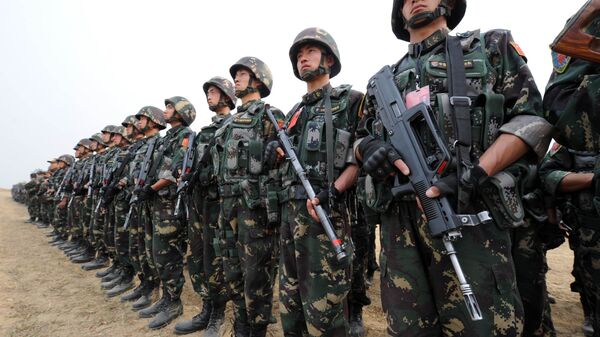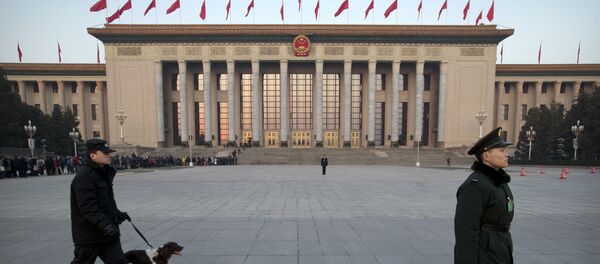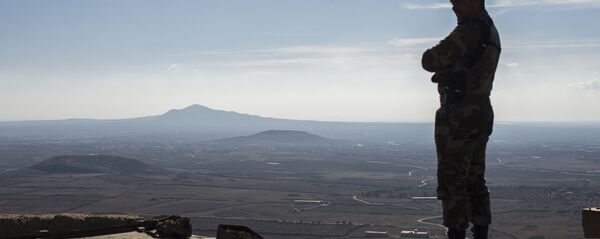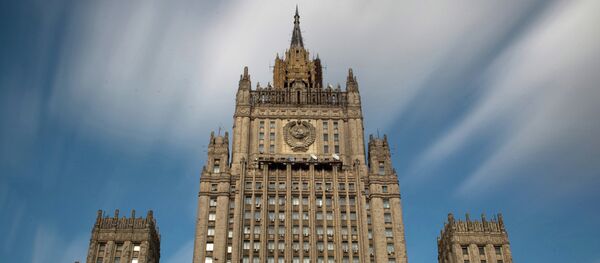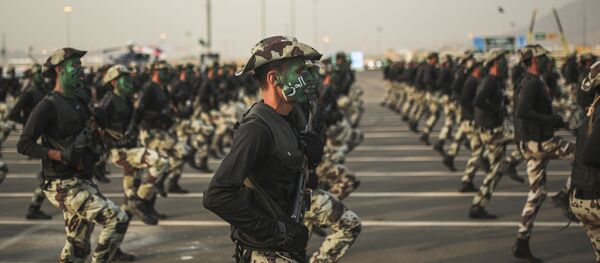On Thursday, commenting on China's new counterterrorism law, and specifically its provision allowing the People's Liberation Army to participate in anti-terrorism operations overseas, Defense Ministry spokesman Yang Yujin emphasized that China has a "proactive" attitude when it comes to international cooperation against terrorism.
Speaking at a regular monthly briefing for reporters, cited by Reuters, Yang explained that in the event that Chinese forces were ever deployed abroad for the purposes of fighting terrorism, it would be in full respect of international norms, including countries' sovereignty.
"Going forward, whether or not to send the military and People's Armed Police overseas to fight terrorism, will be arranged in accordance with a unified national plan," he added, without elaborating.
After the law was passed, speculation quickly emerged suggesting that China could deploy its armed forces to Syria to combat jihadist militants, including radicals from the al-Qaeda-backed East Turkestan Islamic Movement, which operates in the western Chinese province Xinjiang. It was earlier reported that militants from this organization had gone to Syria to fight alongside jihadists there, and that some have returned home to carry out attacks in western China. But is there any truth to the rumors? Will China join the anti-Daesh coalition fighting in Syria anytime soon? Not likely, according to Russian journalist Anton Mardasov.
"It's worth recalling," Mardasov noted, in his article for independent Russian newspaper Svobodnaya Pressa, "that soon after Russia's intervention in the Syrian conflict, the media was filled with reports that a Chinese fleet led by the Liaoning aircraft carrier had passed through the Suez Canal to take part in the war in support of the Syrian government."
However, the journalist continued, the rumors were soon quashed.
Meanwhile, some experts, Mardasov noted, believe that China's possible interest in destroying terrorists abroad stems from the fact that like Daesh in Iraq and Syria, the East Turkestan Islamic Movement threatens to separate Xinjiang from China, and to create an Islamic State on its own territory. In Syria, these experts have emphasized, ethnic Uighur jihadists, associated with the al-Nusra Front and Daesh, have their own bases and training centers.
In October, Russian observers discovered photos showing Chinese military jeeps – presumably operated by the Syrian Army, suggesting that this was the first confirmation of the supply of Chinese military equipment to Syrian government forces. This, Russian military blog BMPD suggested, could be a sign that China has abandoned its earlier-stated position that it would not support any party to the conflict militarily.
"In the war in Syria, a large variety of Chinese weapons has been used, including the HJ-8 MANPADS FN-5 anti-tank system, various types of small arms and light weapons. However, in most instances this was a case of weapons transferred to Syrian rebel groups from various Arab armies, or from the Islamists' seizure of Iraqi military supplies. Apparently, now China's position on the question of military and military-technical assistance to Syrian authorities has begun to undergo changes," BMPD wrote at the time.
"More than anything, [such a move would be problematic] from the point of view of the country's image. For many years, China has not taken part in conflicts abroad, fearing that this could lead to a negative reaction, both domestically and abroad," Maslov noted.
Nonetheless, Alexandr Larin, senior research fellow at the Moscow-based Institute of Far Eastern Studies, told Mardasov that the new counter-terrorism law allowing the PLA to conduct anti-terrorism operations abroad will naturally stoke the rumor mill.
"This could be one of the factors which has led some experts and media to get the impression that China may participate in the Syrian conflict. This idea is supported by the fact that on the side of the militants in Syria are a number of Islamist separatists from China's Xinjiang," the expert noted.
However, Larin added that in his view, "Chinese intervention in the Syrian conflict seems very unlikely. Beijing maintains a policy of equidistance in relation to most countries in the world. Accordingly, it has a special line when it comes to the Syrian crisis. China adheres to three principles – a settlement by political means, the combined action of anti-terrorist forces, and humanitarian assistance. I should note that China is in a rather advantageous position, given that the fighting is being carried out by other countries."
"Moreover," Larin noted, "it is through the Middle East that the [southern route of the] 'New Silk Road' is to extend. This too forces Beijing to smooth out the situation. But the Chinese are unlikely to risk getting involved in the Syrian conflict – moreover via the sending of their troops there, which would mean joining a coalition and automatically receiving rivals and opponents from the other alliances. Thus everything up to now suggests that China will be unlikely to intervene directly in the Syrian war."

